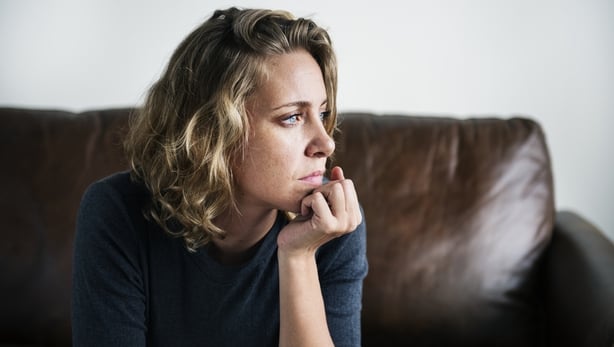None of us really like change, do we? That's the question Claire Byrne puts to GP Harry Barry, who’s talking about his new book, Embracing Change. And Harry agrees: no, we hate change.
But why does change destabilise us so much? According to Harry, not only are we pretty emotionally set in our ways, but our brains are wired to be wary of change:
"If we’re honest with ourselves, all of us, we love the status quo. And there are practical reasons for that. The brain loves the status quo, for starters, because it uses too much energy from the brain’s point of view if it has to change."
Change requires us to alter and adapt our behaviour, which requires effort and we don’t like making that effort and this can lead to negative emotions, like anxiety, sadness. This is how change can have such a powerful impact on our lives. The reality is, though, whether our brains like it or not, change is coming to all of us, so we need to work out how to deal with it.

The last 15 months have shown us just how quickly enormous change can come and hard it can be to cope with it.
"Very few of us will escape this pandemic without experiencing some kind of pain or loss or difficulty. All of our lives will be fundamentally changed."
The best way of dealing with change, Harry says, is to build resilience and we can do this by having a blueprint or a technique that we can work from when change happens.
"When change comes, it’s often sudden and it often blows our minds."
The Drogheda-based mental health specialist is a big fan of the pragmatic approach to change. Pragmatism is the short cut, Harry believes. "We can go on all day long," he says, "or we can find simple, practical, honest-to-God solutions." Then Harry quotes what Blindboy Boatclub said on Claire’s TV programme: "I can’t change the situation of the pandemic, for example, but I can change how I view it."
"Pragmatism is very much about, 'How could I change my thinking about this particular situation that’s going on in my life so I feel less emotional distress and therefore find some way of managing it?’"

Claire asks why we find embracing change so difficult and Harry says that the effort of coping with stress – compared to the continuation of the status quo – can cause emotional distress. Of course, there are a huge range of emotional responses people can have to change and Harry lists some of the negative emotions people can feel as a response to change: anxiety, frustration, shame, hurt, sadness, regret.
And these last two, Harry suggests, will be particularly prevalent as we emerge from the pandemic:
"I think this pandemic is going to open up a world of sadness and regret. You mark my words – before this is over, there will be a huge outpouring of sadness and a huge outpouring of regret. All the things that we could have done."
In other words, beating ourselves up, as Claire says. But we’re not doomed to feel emotional distress, Harry maintains. We can use pragmatism to find our way out of negative emotions.
You can hear the full conversation between Claire and Dr. Harry Barry, including Harry’s five-point blueprint for life, to help deal with change and examples of negative emotions and how to cope with them with pragmatically, by going here.
Embracing Change by Dr. Harry Barry is published by Orion Spring.

